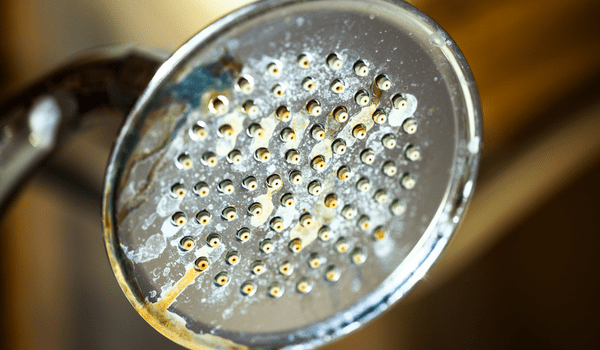How to Identify a Shower Blockage
- Home
- >
- Help & Advice Centre
- >
- How to Identify a Shower Blockage
From low water pressure to standing water in the tray, a shower blockage can detract from the shower experience. Blockages in either the shower head, hose or drain can strike at any time and if not resolved quickly can lead to lasting damage.
Here, we help you diagnose where the blockage in your system might be and how you can resolve it, so your shower performs at its best.
 A Blocked Shower Head or Hose
A Blocked Shower Head or HoseIf you experience lower water pressure than usual, if water is spraying in various directions or if there’s virtually no water coming out of the shower at all, there’s probably an issue with the head or hose. Most likely, clogged with hard water minerals or soap residue.
To clean a showerhead, detach it from the hose and place it in a bucket or plastic container before spraying it with white vinegar. Leave it to soak for around an hour –if it’s a brass head, you’ll need to remove it after around 30 minutes. Then rinse the head, reattach and try it out.
To clear a blockage in the hose, detach the hose from the shower head and shower power unit. Place the hose in a bath or sink and run hot water through. Be careful – use an implement like a funnel to ensure you don’t burn yourself. Alternatively, leave the hose to soak in hot soapy water or white vinegar for an hour, then rinse clean and refit it.
Home remedies can provide a quick resolution, however they don’t always work or deliver lasting results. When this is the case it’s essential to contact a qualified plumber.
If there’s no change, there could be another problem, including:
It’s an old shower head
If your shower head is a couple of years old, it might need replacing. Some experts suggest replacing them every 6 to 8 months.
There’s sediment build up
If the issue only occurs when you’re using hot water (i.e. it’s fine when the shower is using cold water), there could be a build of calcium sediment in your hot water heater. Book a plumber to visit and flush out your system.
The shower head isn’t sealed properly
If you spot water trickling down the hose from the shower head, it might not be completely sealed. You can try and tighten this yourself or book an expert to visit.
If the blockage is as a result of limescale or mineral build up, and this is a common issue you face in your household, then it’s worth looking into a water conditioner. Conditioning hard water will reduce limescale and will help all your appliances to work better and more efficiently. At Metro Plumb, we are experts in water conditioning solutions and can advise you on the best way to solve your hard water issues.
This could be anything from a small blockage that’s easily cleared, or a major obstruction that requires professional intervention, so it’s important to use a few tactics to rule out a more serious before ringing an expert.
If water is draining very slowly or isn’t draining at all, if there’s unpleasant odour coming from the plug hole, or if your bathroom often floods, it’s likely your drain is blocked. This can cause serious damage to your home, so should be investigated as soon as possible.
Shower drain blockages are usually caused by a build up of hair, soap and dirt. Hair and soap stick to drain walls which prevents water from flowing freely. Which builds up until the blockage is severe and the drain is completely clogged.
Follow these simple steps to try and unblock your drain. If the issue persists or the clog doesn’t clear, it’s time to ring a professional.
Use boiling water
This is the easiest way to try and clear your shower drain; the temperature of the water breaks up soap scum and dirt, so it can be washed away.
Plunge the plug hole
When using your plunger ensure there’s an airtight seal. To make the seal more effective, you can use some petroleum jelly.
Baking soda and vinegar
This is a natural remedy you can use to shift a blockage. Pour a cup of baking soda down the drain, followed by a cup of white vinegar. Leave to mix and do its magic for a couple of hours, then rinse with boiling water.
Try chemicals
A more substantial blockage while need a stronger solution to clear it. A DIY store or supermarket will have options to choose from. Ensure to follow the instructions carefully to protect yourself and your drain.
Although home remedies can be affective, they may not provide a long-term solution. That’s why it’s important to seek expert advice for your pipework problems.
It’s worth noting that a blocked drain doesn’t always require a plumber, sometimes it’s a drainage engineer. We cover both services alongside our sister company Metro Rod, so we’re here to help when you need us.
If you follow all the instructions above but find there’s still an issue with your shower, call a professional plumber to come and diagnose the issue. Our Metro Plumb experts are fully trained in bathroom repairs including shower blockages, and with 24/7/365 service, they’re on hand to get your bathroom back up and running quickly. Get in touch today.